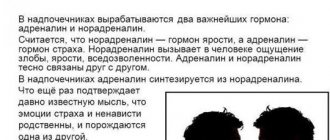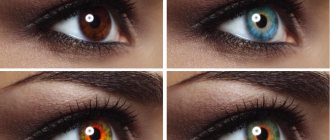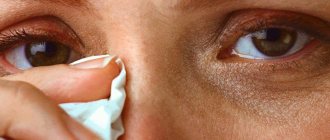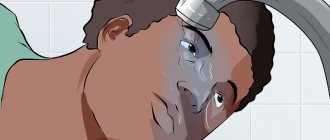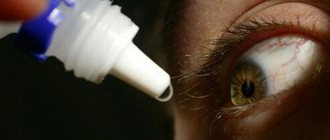Where and how to cure primary and secondary enuresis in children, adolescents, adults?
Enuresis is a disease characterized by spontaneous urination, usually
at night (nocturnal enuresis), or even during daytime sleep (daytime enuresis). Enuresis ( urinary incontinence ) can occur at different ages. Both small children (preschoolers), older children (schoolchildren), and teenagers suffer from it. In the absence of adequate and effective treatment, childhood enuresis progresses to adolescence and then to adulthood. Both adult men and women aged 18 years and older suffer from a disease such as enuresis (the diagnosis is in ICD 10, for example F98.0). And given the fact that the incidence of enuresis in the population, according to Sarklinik, depending on the age of the patient, ranges from 3% to 27%, the relevance of this problem becomes clear. And then reasonable questions arise: “ Which doctor treats enuresis in children , adolescents, and adults? Who should I contact if I have enuresis? Where to treat urinary incontinence in Russia?” In this article we will try to answer these questions.
Children's doctor - pediatrician and enuresis
Usually, if a child wets the bed , mothers and fathers go to the local pediatrician at the children's clinic at their place of residence. Which enuresis clinic ? At the reception, complaints are made that a boy, girl, or child pees in the bed at night . The frequency of nighttime urination varies. One child pees 1 time per night or 1 time at night a week, and the other child urinates 1 to 3 times per night: 1 hour after falling asleep, in the middle of the night and in the morning. And it happens that a wet bed appears during daytime sleep. In this case, the pediatrician ( children's doctor ) throws up his hands and then 2 scenarios occur. 1. The pediatrician says that it will go away on its own, you need to wait. Moms and dads wait 1 year, 5 years, 10 years, 18 years, but enuresis still does not go away. The following tests are prescribed: complete blood count (CBC), ultrasound of internal organs. Advice on the topic that “you need to wake up the child at night” only aggravates the situation, leading to the development of childhood neurosis in the child and neurotic manifestations in adults due to lack of sleep and constant getting up at night. Unfortunately, urinary enuresis alarm clock (wired or wireless), alarm clock with sensory panties often do not meet the expectations of parents and children. What to do, where to go, where to treat? 2. The pediatrician advises contacting a pediatric urologist.
The child is four to five years old
But the child grows up, but the problem remains. Most often it happens that during the day he learns to control the sphincters of the bladder, and at night he pees.
Many parents (especially parents of boys) do not worry until they are five, six, or even seven years old, believing that the child will definitely “outgrow” the problem. Why boys? The fact is that there is a myth that it is normal for boys to write before the age of five, but for some reason this bar is lower for girls. Therefore, parents of girls begin to sound the alarm at the age of 4–4.5 years.
If a four-year-old child pees rarely (for example, once a month), then there is most likely no problem, it’s just that children cannot always wake up at night. Also, do not worry if, for example, he drank too much water at night, ate watermelon and wet the bed once.
It happens that children pee if they have received too many impressions during the day (for example, after a birthday). In this case we are not talking about enuresis. If, against the background of complete physical health, after four years the child pees day or night more than once or twice a week, then you should not wait. It's better to consult a specialist. Only in this case, not to the doctor (after all, we are talking about a healthy, examined child), but to a psychologist.
We will not touch on the possible causes of enuresis. The reasons can be very different. And it will, indeed, be better if a specialist examines your situation and starts working.
Pediatric urologist and enuresis
A pediatric urologist performs a urological examination of the child and prescribes an ultrasound of the kidneys and bladder. In 95% of cases, no pathology in the genitourinary system is detected. Next, a general urinalysis (UU) is examined, which also often shows no pathology. If leukocytes are detected in the urine or changes in the kidneys and bladder according to ultrasound examination, then the urologist prescribes tablets, drops, capsules, and various medications. After treatment, the condition of the genitourinary system improves, pyelonephritis and glomerulonephritis are cured, salts in the urine disappear, but enuresis was and remains. And the question arises: “What to do next?” The urologist says: “There is no more pathology regarding the urological part, you need to see some other doctor, for example, a neurologist.”
Enuresis appeared unexpectedly
But here's another situation. A child, already potty trained, suddenly begins to pee (most often at night). This is secondary enuresis. In this case, first consult a doctor to rule out somatic diseases (inflammation or other problems).
If the child is healthy, then work with a psychologist is necessary. Probably, we are talking about neurotic enuresis. Children react acutely to stressful situations: parental divorce or starting school. And one of the options for reacting to stress can be enuresis.
It also happens that the reason is not obvious: the parents did not divorce, there are no quarrels in the family. However, seemingly insignificant changes in a child’s life can provoke a problem. Don't expect enuresis to go away on its own. Better consult a psychologist.
Child psychologist and enuresis
A child psychologist uses special psychological techniques, conducts psychotrainings, teaches proper communication between parents and sick children, the psychologist draws pictures and plays with the child. Everything is interesting and great. After visiting a psychologist for 6 to 12 months, moms and dads begin to understand that psychological techniques do not always give positive results. Unfortunately, sometimes there are cases when one of the above methods gives small positive results, but after a short period of time, enuresis occurs again with even greater force. Where to go in such cases? Some people use folk methods to treat enuresis at home , but we believe that a doctor should be involved in the treatment.
Causes of enuresis
We must not forget about severe cases when, in addition to stress, behavioral disorders, intrauterine hypoxia, minimal brain dysfunction , psychological conflicts in the family, emotional disorders, going to kindergarten, overwork and malfunction of the nervous system, the causes of enuresis are myelodysplasia, spina bifida, and also neurogenic bladder. Plus, there are cases of a combination of diseases such as enuresis, encopresis , urinary tract dysfunction, neurogenic bladder dysfunction (NDBD), and structural anomaly of the urinary tract. In adults, the development of the disease is facilitated by pregnancy, alcoholism , and weakening of the tone of the muscles involved in the act of urination.
Therapist and enuresis
In adults, the causes of enuresis can be stress, alcohol, and weakening of the bladder sphincter muscles. In this case, people turn to their local physician or urologist. For problems with urination, radiography (X-ray), cystoscopy, and urodynamic examination are also performed. In elderly and senile age, if indicated, surgical methods (surgery) are used. Some therapists advise contacting doctors such as an osteopath , homeopath , or chiropractor .
The child is not yet two years old
No baby is born with the ability to control the bladder sphincters and, accordingly, go to the potty. The sphincters mature at approximately two years of age. Therefore, if a child of one and a half to two years old pees exclusively in his pants, and the potty in the family is a piece of furniture, then there is no reason to worry.
Most often, the problem is created by adults who compare their baby with other children or with themselves at an early age. Thus, grandparents add fuel to the fire by talking about how their own children (the baby’s parents) went exclusively to the potty every year.
Disposable diapers are usually blamed for potty failure. You should not take the words of your grandparents at face value. They were young parents for quite a long time and much had already been erased from their memory. So, it is quite possible that their own child was potty trained not at the age of one, but later: at two or even three years.
So, if the baby is under two years old, then there is definitely no reason to worry.
Reflexologist and enuresis
Fortunately, Sarklinik has been providing comprehensive treatment of enuresis in children ( boys , girls ), teenagers and adults in Russia, Saratov for many years. New hardware and non-hardware reflexology methods are used, which make it possible to get rid of severe forms of urinary incontinence at any age. The effectiveness of treatment reaches 99%. Methods are selected individually for each patient, depending on the type of disease, severity, age, concomitant diseases, medical history, and examination results. Sarklinik treats various forms and types of enuresis. Primary and secondary, neurosis-like and neurotic, night and day, congenital and acquired, as well as children, adolescents, adults, senile, female and male, psychogenic and functional.
Which doctor will help with enuresis?
If you and your child have problems with urination, increased frequency of urination during the day or at night, contact a reflexologist at Sarklinik, do not wait for complexes to develop. Of course, increasing the duration of the disease leads to the emergence of severe forms that will take much longer to treat. And at the same time, the effectiveness of treatment may decrease. However, treatment in the early stages allows you to get maximum results in a short time. Sarklinik knows how to easily cope with the disease, how to defeat enuresis forever on an outpatient basis! Cure occurs in 99% of cases. In severe cases, repeated reinforcing courses of therapy are sometimes required.
And read less of sites where they write that enuresis is not a disease, and the director of a summer camp or a school nurse can solve this problem. Click here for more information about treatment.
Sign up for a consultation. There are contraindications. Specialist consultation is required.
Text: ® SARCLINIC | Sarclinic.com \ Sarсlinic.ru Photo: © Depositedhar / Photobank Photogenica / photogenica.ru The people depicted in the photo are models, do not suffer from the diseases described and/or all coincidences are excluded.
Related posts:
Birth trauma, how to avoid birth trauma?
Puberty boys, girls, teenagers, adolescence, puberty
Perinatal damage to the central nervous system, central nervous system in newborns, organic damage to the central nervous system
Mental retardation in children: moderate, mild, severe, profound, mental retardation, dementia, treatment
Enuresis in girls, treatment of enuresis in girls, nocturnal, daytime enuresis
Comments ()
What not to do
It happens that parents do not turn to specialists and try to solve the problem on their own. For example, they limit the child’s water consumption in the evening, give herring at night and put him on the potty several times a night. These methods don't help. The child does not learn to control the bladder sphincters, his bladder simply fills more slowly (if there is fluid restriction) or empties (due to emptying).
It is important to understand that drinking restrictions can be harmful. Night landings are more likely to lead to neuroticism, because a forced awakening interrupts the natural course of sleep. As a result, the child does not get full rest.
In conclusion, we would like to once again draw attention to the importance of turning to specialists - a doctor, a psychologist - and the inadmissibility of self-medication.
